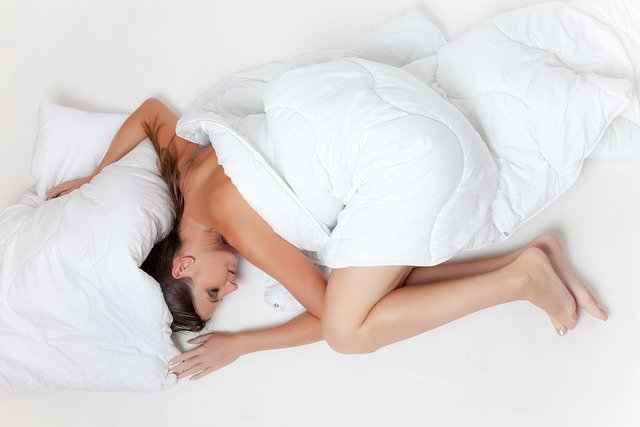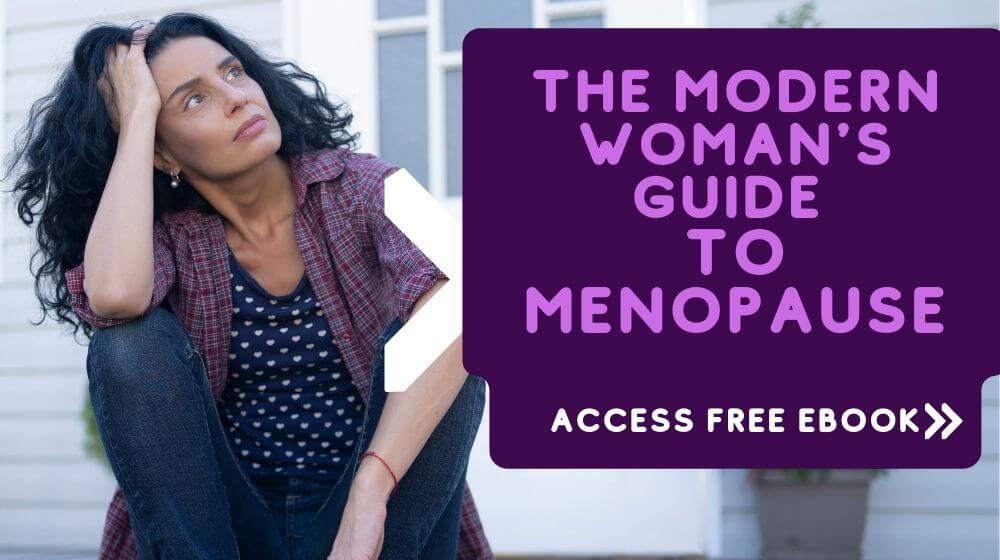As women get older, hormonal changes can lead to a variety of sleep issues. Menopausal women in particular may have difficulty falling asleep or staying asleep due to hot flashes, night sweats, and other symptoms.
Menopausal sleep issues can have multiple negative impacts on health and wellbeing if not properly managed. Poor quality sleep has been linked to chronic fatigue which can lead to an inability to concentrate or lack of motivation during the day. It can also impact physical health due to hormonal imbalances that occur when we don’t get enough restful sleep. In addition to this, insomnia is associated with increased stress levels which can lead to depression or anxiety over time if left unchecked.
Why do women over 45 have trouble sleeping?
While menopause is a naturally occurring event in a woman’s life, the changes it brings can be difficult to manage. One of the most common symptoms for women entering menopause is difficulty sleeping, also known as insomnia. Insomnia can affect a woman’s quality of life and has many causes that should be considered when trying to remedy the issue.
Hormonal Fluctuations
The biggest cause of sleep issues during menopause is fluctuating hormones. During menopause, estrogen levels fluctuate dramatically which can lead to night sweats, hot flashes, and restlessness. This can disrupt both falling asleep and staying asleep throughout the night. Hormonal fluctuations are part of the natural process of aging but they can be managed with lifestyle changes or hormone replacement therapy (HRT).
Stress & Anxiety
High levels of stress and anxiety are known to disrupt sleep patterns. During this time in a woman’s life, she may experience an increase in stress due to other physical changes associated with menopause such as hot flashes and mood swings. Stress management techniques such as relaxation exercises or yoga can help mitigate insomnia caused by high stress levels. Additionally, engaging in regular physical activity can help reduce stress levels overall.
Sleep Hygiene Habits
The final factor that contributes to difficulty sleeping in middle age women is poor sleep hygiene habits. This includes activities such as drinking caffeine late in the day or watching TV before bedtime that can interfere with your body’s natural circadian rhythms—the internal clock that tells us when it’s time for bed and when it’s time to wake up each day. Additionally, having an uncomfortable mattress or too much light in your bedroom can also disrupt your body’s ability to fall asleep quickly and stay asleep through the night.
Other Physical Changes
In addition to hormonal changes during menopause, other physical changes can also make it harder to get a good night’s sleep. These include joint pain due to arthritis or osteoporosis; chronic pain due to fibromyalgia or muscle tension; and breathing difficulties such as asthma or COPD (chronic obstructive pulmonary disorder). All of these conditions can disrupt sleep patterns by causing discomfort or even waking a person up in the middle of the night.
Fortunately, there are steps that women over 45 can take to manage their sleep issues and get the rest they need.
Set a Good Sleep Routine
Establishing a good sleep routine is key to getting quality restorative sleep. Start by going to bed at the same time each night and waking up at the same time every morning—even on weekends. This helps your body establish an internal clock which will make it easier for you to fall asleep at night. Additionally, avoid bright screens and caffeine close to bedtime as both can disrupt your natural sleep cycle.
Make Your Bedroom Sleep-Friendly
Your bedroom should be a sanctuary; it should be dark, cool, quiet, and comfortable. If you’re having trouble sleeping due to hot flashes or night sweats, consider investing in lightweight sheets and a cooling mattress pad—both of which can help keep you more comfortable while you sleep. If noise is an issue, try using earplugs or white noise machines (there are even apps that generate white noise) to maintain a peaceful atmosphere.
Stick to a consistent bedtime routine
Creating a bedtime routine is an important step for anyone looking to improve their sleep quality. A bedtime routine helps signal your body that it’s time for rest by establishing a consistent set of activities that happen before bed every night. This might include taking a shower or bath, doing some light stretches or yoga poses, reading a book or magazine, journaling about the day’s events, and more. The idea is that by creating this routine each night and sticking to it religiously, your body will become conditioned to relax when it’s time for bed.
Strategies for Avoiding Caffeine Late in the Day
To combat menopausal-related sleep issues, limiting or avoiding consumption of caffeinated beverages late in the evening is an effective strategy for improving quality of restful sleep at night. Many people find that switching their afternoon coffee or tea habit for decaf versions helps them get better rest at night without sacrificing their daily ritual altogether. If decaf doesn’t suit your taste preferences then try replacing evening caffeinated drinks with herbal teas such as chamomile or lavender which are known for their calming properties and may help improve relaxation before bedtime.
Stay Cool at Night
Hot flashes can be one of the most disruptive symptoms of menopause when it comes to getting quality sleep. To combat this symptom and keep yourself cool at night without resorting to air conditioning (which can dry out your sinuses), try using lightweight sheets made with breathable fabrics like cotton or bamboo; avoid wearing heavy pyjamas; buy a cooling mattress pad; try sleeping with fewer blankets so you can adjust as needed, and consider using a fan in your bedroom for additional airflow.
Take Sleep Aids
Taking certain supplements may be beneficial if you’re struggling with sleep issues due to menopause-related symptoms. For example, magnesium has been found to help reduce anxiety levels and improve sleep quality in postmenopausal women; omega-3 fatty acids are said to have calming effects; chamomile has been used as a herbal remedy for insomnia for centuries, and melatonin is often taken as an over-the-counter supplement for people who have difficulty falling asleep. Talk with your doctor before starting any new supplement regimen so they can recommend the right dosage for you based on your individual needs and medical history.
Seek Medical Help
If your sleep issues persist despite your best efforts, it may be time to see your doctor about possible treatments such as hormone replacement therapy (HRT). HRT has been known to provide relief from menopause-related insomnia as well as other menopause symptoms like hot flashes and mood swings. Additionally, some medications—such as antidepressants—have also been found helpful in treating insomnia in menopausal women when HRT alone isn’t enough.
Sleep plays an integral role in our overall health and well-being; without proper rest, we can suffer from fatigue, irritability, anxiety, depression and difficulty concentrating—to name just a few of the side effects of insomnia. While the transition into menopause may cause temporary shifts in our sleep patterns, there are steps that women over 45 can take to minimize these disruptions so they can get the quality sleep they need each night. With some simple lifestyle changes and potential medical intervention depending on the severity of symptoms, women over 45 can manage their sleep issues effectively so they can enjoy true restful nights once again.







